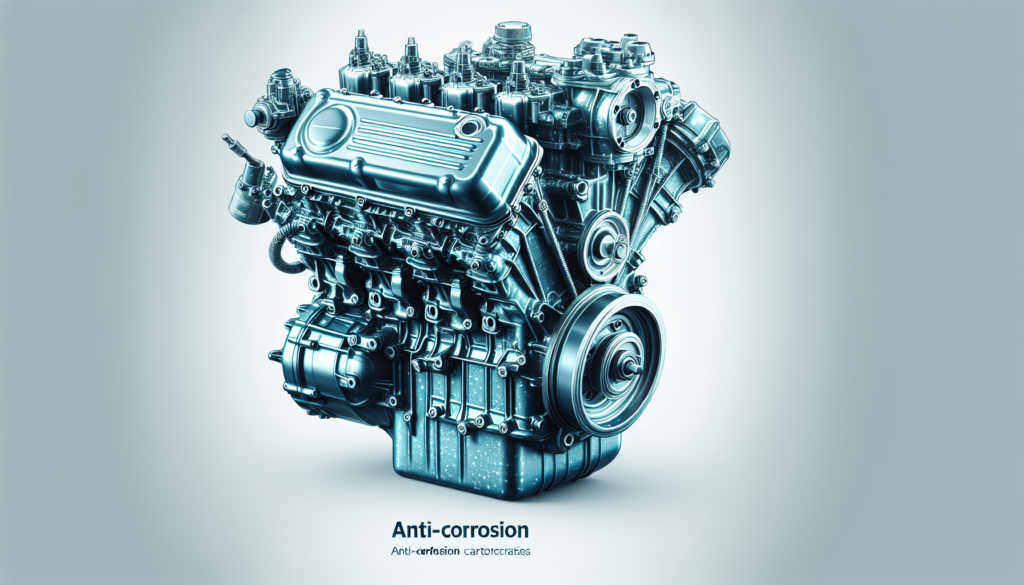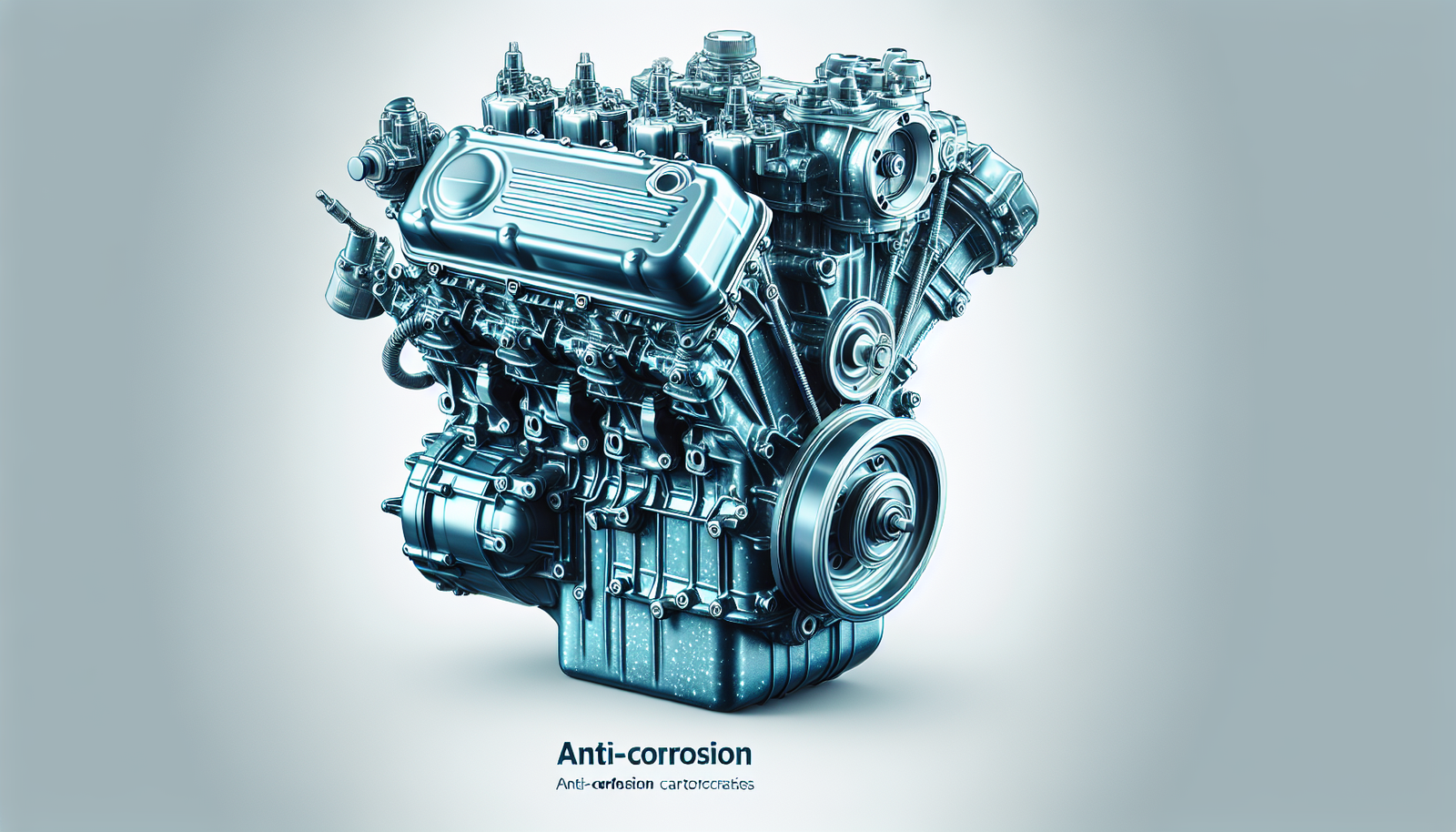Prepare yourself for a comprehensive exploration of boat engine corrosion prevention in this expert guide. As a boat owner, you know that looking after your engine is the heart of maintaining your craft. You will learn effective strategies, best practices, and innovative solutions to keep your boat engine corrosion-free. This guide arms you with the knowledge so you can avoid costly repairs, ensuring smooth sailing for years to come. So, let’s help you extend the life of your marine motor with the Expert Guide to Boat Engine Corrosion Prevention.

Understanding Corrosion and its Impact on Boat Engines
Corrosion is something that you’ve likely heard of, but what exactly does it mean?
Definition of Corrosion
Simply put, corrosion is a natural process that transforms a refined metal into a more stable form, such as its oxide, hydroxide, or sulfide. It’s a gradual destruction of materials, usually metals, by a chemical reaction with their environment. In less technical terms, it’s the wearing down of metals over time.
How Corrosion Impacts Boat Engines
But the big question is, why should you care about corrosion? Well, when it comes to boat engines, corrosion can have a devastating effect. It can change the surface properties of a metal part, leading to abrasion, leaks, reduced strength, and even complete part failure. Over time, unaddressed corrosion can severely damage your boat engine, leading to expensive repairs or even engine replacements.
Types of Corrosion that Affect Boat Engines
So, what types of corrosion affect boat engines? There are several types, including uniform corrosion, pitting corrosion, galvanic corrosion, and crevice corrosion. Each type has different effects on your boat engine and requires different methods of prevention and treatment. It’s also possible for your engine to experience more than one type of corrosion at a time.
Role of Salty Water in Corrosion
If you’re a boater, you know that water is a part of your life. But did you know that salty water can significantly contribute to corrosion, especially in your boat engine?
Influence of Salt Water on Boat Engines
First, let’s talk about how salt water affects boat engines. Salt water, with its high salt concentration, accelerates the corrosion process. This is because salt water is an excellent conductor of electricity, leading to an increased rate of metal loss.
Why Salt Water Accelerates Corrosion
Salt water speeds up the oxidation process that causes corrosion in metals. This is because the sodium and chloride ions in salt water help to facilitate the transfer of electrons, prompting corrosion.
Exposure to Fresh Water vs Salt Water: Corrosion Comparison
While both salt water and fresh water can cause corrosion, salt water is far worse due to its high electrolyte content. This makes corrosion in salt water faster and more severe compared to fresh water.
Signs of Boat Engine Corrosion
Thankfully, corrosion doesn’t occur without a trace. There are several indicators that can tip you off to the presence of corrosion in your boat engine.
Visual Indicators of Corrosion
The most apparent sign of corrosion is visual. You may see discoloration, rust, or pitting on the surface of your boat engine.
Engine Performance Issues Caused by Corrosion
Corrosion can also affect the performance of your boat engine. If your engine has unexpected power losses or is running unevenly, corrosion may be a factor.
Checking Engine Parts for Corrosion
When checking for corrosion, pay special attention to parts such as the cylinder head, water pump, and fuel injectors. These parts are usually more prone to corrosion due to their frequent contact with water.

Boat’s Engine Materials and Corrosion
Different materials behave differently under the threat of corrosion, particularly in a boat engine.
Common Materials Used in Boat Engines
Boat engines are typically made of materials like aluminum, bronze, stainless steel, and cast iron. These materials each have their own benefits and drawbacks when it comes to corrosion resistance.
Most Corrosion-Resistant Materials
When it comes to corrosion resistance, stainless steel and bronze stand out due to their resistance to rust. However, they are not entirely immune to corrosion and can still suffer under certain conditions.
Corrosion Behavior of Different Materials
Different materials react differently to the corrosion process. For instance, aluminum can form a protective oxide layer to slow down corrosion, while iron rusts easily when exposed to water and oxygen.
Importance of Regular Engine Maintenance in Preventing Corrosion
Prevention is always better than cure, and with corrosion, it’s no different.
Why Regular Maintenance is Key
Regular maintenance isn’t just to keep your boat looking great; it’s about preserving its functionality and longevity. When you maintain your boat engine regularly, you can catch signs of corrosion early and act to prevent further damage.
Impact of Maintenance on Lifespan of Boat Engine
A well-maintained engine doesn’t just run better; it also lasts longer. By preventing corrosion, you can significantly extend the lifetime of your boat engine and avoid premature replacements.
Scheduled Maintenance Routines for Corrosion Prevention
Being strict about your maintenance routine is key. This includes regular inspections, servicing, and oil changes. Always remember, delaying maintenance doesn’t save you money; it just leads to costly repairs down the line.
Proper Cleaning to Prevent Boat Engine Corrosion
keeping your boat engine clean is one of the simplest ways to prevent corrosion.
Best Practices in Boat Engine Cleaning
When cleaning your boat engine, make sure to remove any dust, grease, or grime that’s accumulated on the surface. Always dry your engine properly afterward to prevent moisture buildup.
Effective Cleaning Products for Corrosion Prevention
Some cleaning products can also help deter corrosion. Look for marine-specific cleaners with anti-corrosive properties. These cleaners can clean your engine while also leaving behind a protective layer to prevent rust.
Proper Drying Methods After Cleaning to Prevent Corrosion
After washing your boat engine, always ensure it’s fully dried before storing or using it again. Any moisture left behind can accelerate the corrosion process.
Use of Corrosion Inhibitors
Corrosion inhibitors are a great way to give your boat engine some extra protection against corrosion.
What are Corrosion Inhibitors
Corrosion inhibitors are substances that, when added to a solution or surface, significantly decrease the rate of corrosion. They act by blocking the corrosion process at certain steps.
Types of Corrosion Inhibitors Suitable for Boat Engines
When choosing a corrosion inhibitor for your boat engine, you’ll want to look for products that are designed specifically for the marine environment. They should work with your specific engine material and be resistant to washing off when in contact with water.
How to Apply Corrosion Inhibitors
Corrosion inhibitors can be applied in various ways, including spraying, brushing, or dipping. Regardless of the method, make sure your engine is clean and dry before application, and always follow the manufacturer’s instructions.
Employing Protective Coatings and Paints
Another great way to protect your boat engine from corrosion is by applying protective coatings and paints.
Benefits of Protective Coatings in Corrosion Prevention
Protective coatings and paints can shield your engine from the elements, prevent reaction with corrosive substances, and reduce contact with water, thereby minimizing the chances of corrosion.
Choosing the Right Protective Coating or Paint
There’s no one-size-fits-all solution when it comes to coatings and paints. You need to choose products that are suitable for the marine environment and compatible with the specific materials of your boat engine.
Steps in Applying Protective Coatings and Paint
To apply protective coatings or paints, start by cleaning the engine surface thoroughly. Once dry, apply the product evenly according to the manufacturer’s instructions. Allow sufficient drying time before using your boat again.
Corrosion Inspection and Assessment
Recognizing signs of corrosion early is crucial in preventing further damage. That’s why conducting a corrosion inspection must be part of your regular boat engine maintenance.
Importance of Corrosion Inspection
Regular inspection allows you to catch early signs of corrosion before they become a major problem. By doing so, you can save on potential costly repairs and keep your boat in good shape.
How to Conduct a Thorough Corrosion Inspection
When inspecting your boat engine, look out for signs like discoloration, rust, or pitting. Pay special attention to places where water is likely to pool or where two different metals are in direct contact.
Assessing the Severity of Corrosion
In some cases, corrosion may be minor and easily treatable. But in severe cases, it may require extensive work or even part replacement. Either way, knowing the severity helps you determine the right course of action.
What to Do When Corrosion is Detected
Even with meticulous care, you might still encounter corrosion. The important thing is how you respond.
Initial Steps After Detecting Corrosion
Upon identifying corrosion, the first step is always to clean the affected area. This lets you assess the severity of the damage and decide on the next steps.
When to Seek Professional Help
If the corrosion is serious, it’s best to seek professional help. Experts in boat maintenance and repair have the skills and resources to handle intense corrosion properly.
Corrosion Repair and Restoration Methods
Corrosion treatment options vary depending on the severity. This can range from simple methods like rust removal and repainting to more complex solutions like part replacements. In any case, remember that addressing corrosion promptly is key to preserving your boat’s life.


[…] method to diagnose the problem is through a compression test. “Expert Tips For Proper boat engine compression testing” is the ideal guide for you, packed full of practical advice coming straight from seasoned […]